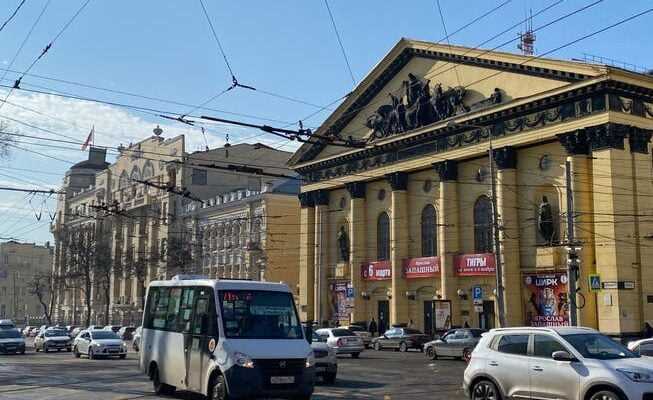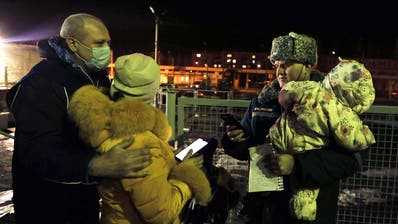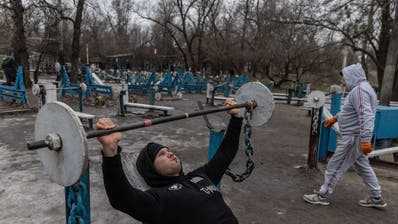They are on the ground in the conflict over Ukraine: the correspondents of the NZZ. In short interviews they talk about their experiences and impressions. Today, Markus Ackeret is reporting from Rostov-on-Don, where the residents are not yet ready to believe that war is imminent.
table of contents
Rostov is a very lively Russian provincial city.
Hello Markus, I’ve just reached you in the southern Russian city of Rostov-on-Don. Can you give us a brief impression of the city?
It is a very lively, larger Russian provincial town with its own charm and a pretty promenade on the Don. The architecture with buildings from pre-revolutionary and Soviet times is diverse. Since Rostov is a university town, there are many young people on the streets. There are numerous cafes, restaurants and shopping malls and of course a McDonald’s which is very popular. The lifestyle feels very Western overall. The city was one of the venues for the soccer World Cup in 2018, so there is a new stadium and a new airport.
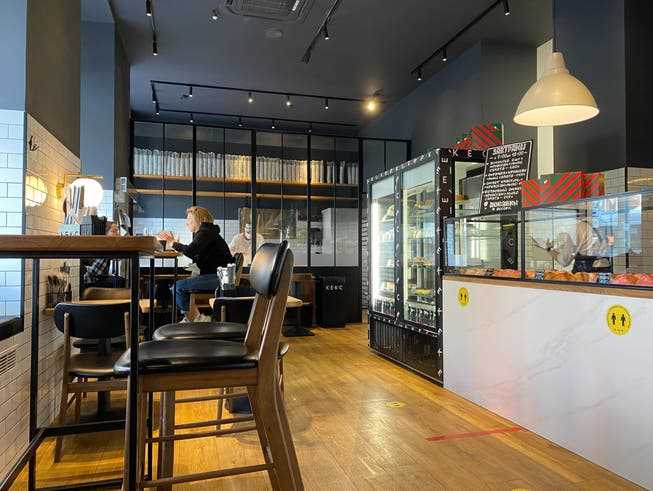
In the morning the cafés are still empty, the many students in the city only come later.
Rostov is around 100 kilometers from the border with Ukraine. Behind them are the Ukrainian regions of Donetsk and Luhansk, which are controlled by pro-Russian separatists. Is there tension in the air?
No, here in the city there is hardly any sense of an impending war – even if the people feel sorry for the evacuees from Donetsk and Luhansk and think that they have to be helped. Rostov is a regional center and maintains diverse relationships in all directions, with particularly close ties to Donetsk in Donbass and to the nearby Ukrainian port and industrial city of Mariupol. Rostov has always had a Ukrainian population. People came here looking for work, there is a lively exchange across the border, and of course family relationships. When I was out and about in the border area in the past few days, I saw a lot of the military.
What you saw?
I mainly see supply vehicles on the streets. Or other military vehicles at night driving towards the border. On Monday I saw tanks stationed somewhere, but now they’ve moved on.
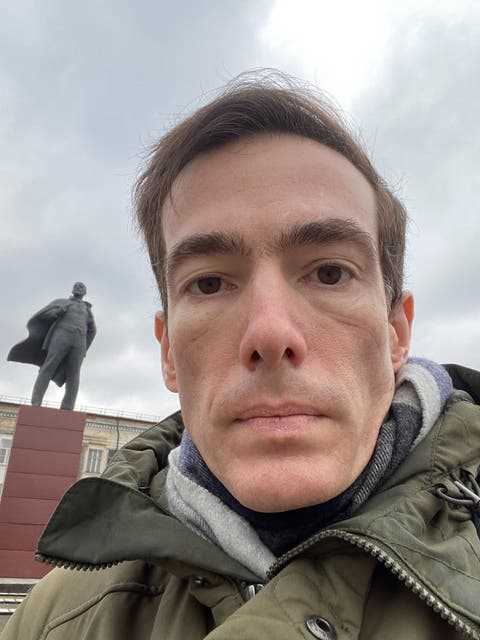
NZZ correspondent Markus Ackeret, on Wednesday morning in front of the city administration of Novoschakhtinsk, not far from Rostow.
What is the mood of the population towards a western journalist?
The people I spoke to are interested, but at the same time amazed and sometimes suspicious. When I spoke to a Russian civil protection worker who was standing around at a reception camp for those evacuees from Donbass, he was very forthcoming.
What do you mean by suspicious?
A group of evacuees, for example, wanted to know where I came from. When I said from Switzerland, they said “Ah, a neutral country”. After that they immediately asked why we didn’t have a position. When talking to another refugee family, the younger woman began to talk openly about her life in Donetsk, until her aunt intervened, saying she didn’t even know if I wasn’t a spy, I was a foreigner. I then had to identify myself with my accreditation from the Russian Ministry of Foreign Affairs. That also calmed the aunt down, and the wife was able to continue telling the story.
It sounds as if the interlocutors were very open.
Well, I’ve been traveling in all regions of Russia for 15 years now. If I compare with the past, people are already more reserved today. The conflict between Ukraine and Russia in particular is actually dividing the West and Russia more and more; this ditch is very present in the population. A certain uneasiness towards the West can be sensed, towards a West of which one does not really know what it is up to. Today, I have the impression that I’m hitting tricky ground with a question more often than I did a few years ago, even if I’m not asking from a specific position.
Is there talk of an impending war in Rostov?
Yesterday a taxi driver asked me if we in the west really believed that the Russians wanted to start a war. Until yesterday, at least, my Russian interlocutors here did not think so. Today I would like to ask around again to see whether Putin’s decision on Monday evening, i.e. the recognition of the independence of the Donbass republics, has triggered more unease and perhaps also fear of war. Or just the opposite: many Russians read Putin’s decision as a measure to prevent war.
As the?
That is the view of the majority of Russians, which is also conveyed by the state media. It reads: If there is an armed conflict, it will be triggered by Ukraine or the West. Russia is being forced to intervene to prevent worse from happening in the two republics of Donetsk and Luhansk and across the region.
Interview: Dominique Burckhardt
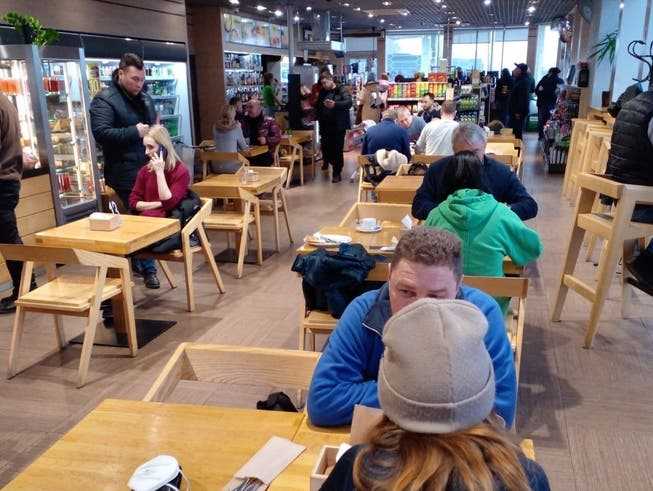
A gas station cafe between Kiev and Poltava. “People are tense, but they cover it up well,” says NZZ correspondent Ulrich Schmid.
Good morning Ulrich. You’re on your way to Kharkiv. Where can I reach you right now?
This morning at six I left Kiev. Now we are somewhere between Kiev and Poltava, about 120 kilometers from Kiev. At the moment we are sitting in a very cozy breakfast restaurant. I am surrounded by very well dressed, very civilized, cultured and decent people. Everything is absolutely western.
So not the way Putin describes Ukraine.
No. It shows once again that Putin lives in an absolutely parallel world. He paints this picture of Ukraine as a state that has been preyed upon by vicious fascists and oligarchs, that is impoverished and where the population has nothing left to eat. But that’s not true. In the 1990s I drove this route very often. In Soviet times there was not much more on the road than shabby stalls where you could get coffee and maybe a piece of bread. Today there is everything at the numerous petrol stations, including wonderful coffee.
Music is playing in the background. It doesn’t sound like a war mood at all.
Nothing smells like war here. It’s absolutely quiet, the people are easy-going, calm, friendly and helpful.
Didn’t Putin’s speech and the announcement to send troops to Donetsk and Luhansk trigger anything?
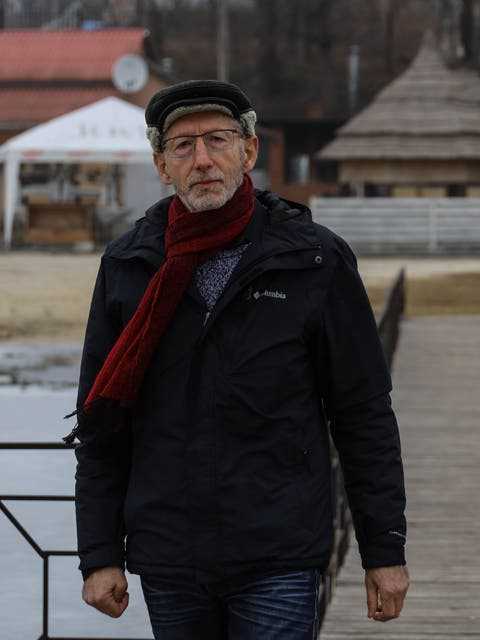
NZZ special correspondent Ulrich Schmid
Everyone I’ve spoken to so far says: if anything, the defensive attitude of the Ukrainians and their determination to defend themselves by any means necessary has only been strengthened. Of course, they can also encourage themselves. It is very important what happens now. Putin has recognized the two so-called People’s Republics and has troops marched in there. Does he stop then? Or does he go ahead with an invasion of Ukraine? All Ukrainians are extremely excited about this.
How are people reacting?
They’re tense, but they cover it up very well and are actually relatively calm and composed. Everyone knows exactly what is going on. I’m sure many are scared, it’s an eerie feeling of being threatened. But they don’t let that show. They sit here and eat and laugh.
Nevertheless, the situation must be very stressful.
The eternal wait for Putin’s next step has characterized the whole situation for months. You sit here and wait to see what Putin does. Many people complain that they are not the acting subject but the absolute object in this game – a pawn on the chessboard. This permanent incapacitation upsets people.
How has the journey gone so far?
We are on the big road that leads to Kharkiv via Poltava. Traffic is normal, with numerous vehicles traveling in both directions. But you don’t notice anything of a flight movement. We overtook two military convoys, but they weren’t that big. There were no tanks.
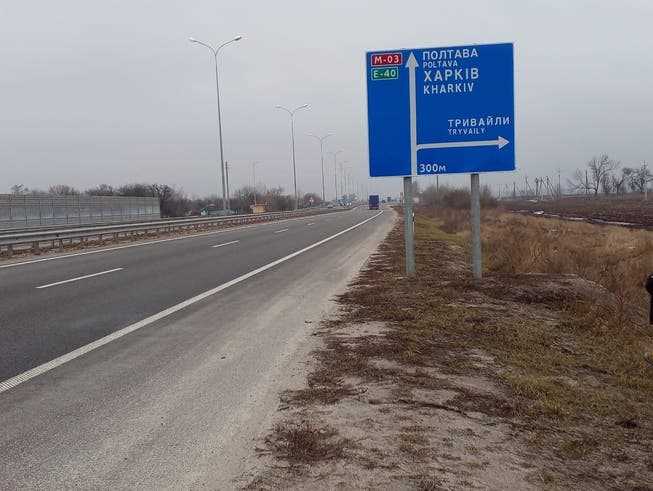
A cold foggy day in Ukraine. The road leads via Poltava to Kharkiv, the second largest city in Ukraine.
You’re on your way to Kharkiv. What are you doing there?
I will take a look at the situation on site. Kharkiv lies in a possible path of entry. Across the Russian border lies Belgorod, where many troops have been massed. It is possible that there will be an attack from the Russian side. But that could also be a diversionary tactic to tie down Ukrainian forces. These are standard warfare tactics. We’ll see what’s up and then we’ll react. My goal is to go to the front, to Luhansk and Donetsk, and to report from there.
How is it for you to be a correspondent in Ukraine?
I’m tense too, of course. I don’t know what’s coming. It has always tempted me not to know what to expect. But I’m tense and very worried. It is also very interesting for me because I experienced Ukraine as a Soviet republic. It’s impressive how the country has developed, how western the people are, how relaxed and self-confident. This is a huge difference from the Soviet Union.
How do you meet the Ukrainians?
If they are convinced Ukrainians – patriots who love their country – they treat me with absolute openness and warmth. Only those who mourn the Soviet Union dislike Westerners and tend to be suspicious. Like Putin, they presumably sense that things will get uncomfortable for them if Ukraine continues to develop in the direction of democracy and the rule of law.
Interview: Jonas Roth
